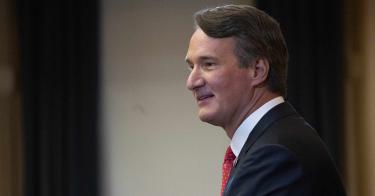If California wants to drive its state into an economic ditch with a senseless ban on gasoline-powered vehicles, so be it. But it’s time for Virginia to stop riding shotgun.
California’s policies on electric vehicles are exacerbating blackouts and restricting the ability of its residents to buy the cars they want. This bodes ill for Virginia, which mindlessly outsourced its vehicle policies to California a few years ago.
In the 2021 law, the Virginia General Assembly approved the use of California’s earlier set of EV rules.
But in 2022, California toughened its rules. The new ones set to kick in this Jan. 1 require that 22% of new vehicles sold by the end of 2025 be electric-powered, with the percentage increasing until, by 2035, no new cars, trucks or SUVs could be powered by gasoline or diesel.
The Golden State announced the policy when enthusiasm about EVs was much higher. Ironically, the very week of the announcement, the state’s grid operator issued a notice asking residents to not use their air conditioning or charge their EVs in the evening because the grid could not reliably stand up to the strain.
>>> Virginia Breaks Free From California’s Car Restrictions
Fortunately, though, the Old Dominion just now rerouted.
Gov. Glenn Youngkin and Attorney General Jason Miyares said Wednesday that the state will not go along with California’s eventual ban on gasoline-powered cars, ensuring that Sacramento’s bad policy doesn’t restrict your right to buy the vehicle you want.
The Democratic-controlled legislature is already complaining, though, so there’s still legal work to be done. But at least the brakes have been hit.
California’s other energy policies are also a disaster. Thanks to its high taxes, stringent regulations, and a low carbon fuel standard, gasoline prices average $4.80 a gallon, a full $1.20 more than in our region.
An expensive EV might work for starlets in Hollywood or San Francisco tech executives, given the moderate climate and high wealth, but it just isn’t right for most Virginia residents.
Virginians like gasoline-powered cars—99.39% of their vehicles have an internal-combustion engine. Sure, some will choose EVs, but many prefer the traditional car engine.
Even apart from the vehicles’ cost, the issues are range and convenience. Charging takes time, and the number of public chargers is limited. To extend the life of a battery, EV manufacturers warn users to avoid too much super-charging and to aim to keep the charge between 20% and 80%, effectively reducing the advertised range nearly in half.
Even more pertinent, temperatures in Virginia fluctuate much more than in coastal California. EVs can lose 40% of their range in cold weather (25 degrees or lower) and 20% in hot weather (95 degrees or higher), according to AAA.
New and used cars have never cost more than they do today, and hitching our wagon to Sacramento’s mandates will make things much worse as California continually ratchets up the percentage of cars that must be electric-powered.
One good-faith estimate is that dealers will have to sell three EVs for every gasoline-powered pickup by 2032. It’s easy to imagine those pickups being rationed or auctioned to the highest bidder.
>>> Major Questions Raised by EPA’s EV Mandates
Less choice and higher cost will reduce new car sales overall. Right now, Virginia dealers sell about 300,000 per year, which supports about 160,000 jobs, according to Auto Innovators.
To add injury to insult, an older fleet of vehicles—the inevitable result of new cars becoming more expensive and less desirable—is less safe, as older vehicles lack the most recent safety technology such as backup warning cameras and automatic emergency braking systems. When the U.S. Department of Transportation did a less draconian ban, it predicted thousands more highway deaths because of slower vehicle-fleet turnover.
And on top of that, EVs are inherently more dangerous on the road, because of their weight and lack of warning noise. One study shows EVs are twice as likely to hit pedestrians.
California is not content to stop at your personal vehicles and is pushing to change medium- and heavy-duty trucking and even off-road equipment such as harvesters, lawn mowers and leaf blowers, too.
But working people across our commonwealth rely on gasoline to keep them on the job and not sitting around waiting for a recharge.
Virginians are an independent bunch, voting sometimes red and sometimes blue. There was no reason to yoke our vehicle policy to the most radical state in the country. When California toughened its rules, it was past time to detach from California and follow our own path, and thank you to Mr. Youngkin and Mr. Miyares for doing so.
This piece originally appeared in The Washington Times on June 5, 2024




